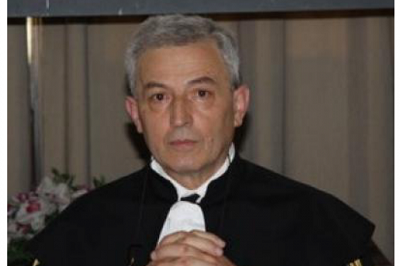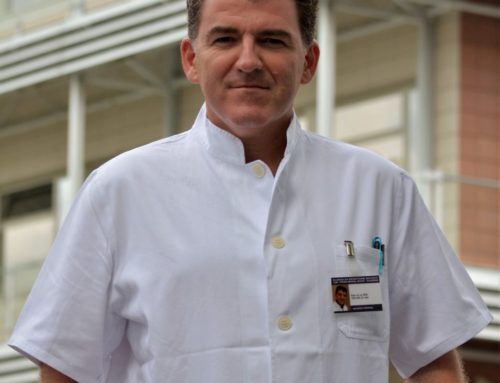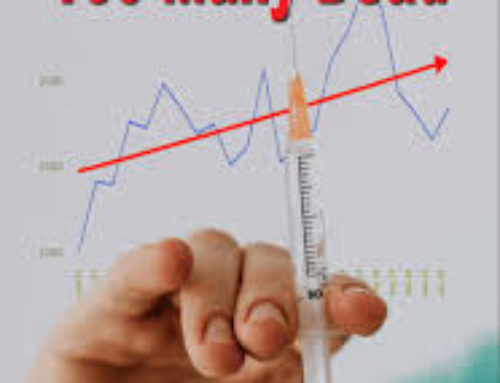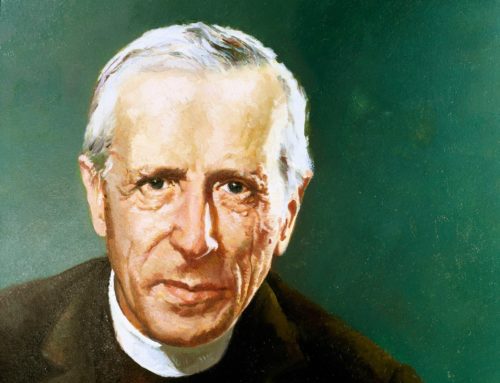“Coronavirus has exposed the limitations of hegemonic materialism”. An interview with Prof. Danilo Castellano
27 March 2020By editorDSC NEWS

At the end of February the eleventh International Congress of the Colombian Association of Catholic Lawyers and the sixth Hispanic Day of Natural Law was held at the headquarters of El Claustro in Bogotá. These two initiatives, sponsored by the Catholic University of Colombia, involved the participation of experts in various matters coming from Italy, Spain, Chile, Brazil, Argentina, France, Ecuador, and Colombia. They examined important and relevant questions linked to the theme of the Catholic economy in the light of the natural law and the social doctrine of the Church. Among the various speakers, the one Italian orator was Professor Danilo Castellano, Professor emeritus of philosophy of law at the University of Udine and Dean emeritus of the Law School of the same university, foreign correspondent member of the “Royal Academy of Moral and Political Sciences” as well as an honorary member of the “Royal Academy of Law and Legislation” of the King of Spain. From 1986 to 2007, Professor Castellano directed the Institut International d’Etudes Européennes “A. Rosmini” in Bolzano, where he is currently vice-president. He is now the director of scientific journals, the editor of various volumes, the author of over twenty books and more than four hundred scientific publications (some of which have been translated into various languages). Altare Dei interviewed him.
Professor Castellano, you were the only Italian to speak during the international conference of Catholic lawyers held in Bogotà in the last few weeks. What topics were addressed at the conference?
The conference was prepared for some time by a scientific committee directed by Professor Miguel Ayuso of Madrid, who is now the president emeritus of the International Union of Catholic Lawyers. “Natural law and economy” was the theme of this meeting, in which scholars from Europe and the Americas participated. It did not focus on legislation on the economy, which is improperly called “economy law.” The focus was more on examining and discussing the relationship between Law and Economy. Obviously the examination and discussion were not “abstract.” We were also requested to consider the positive law relative to the economy, in order to “understand it” in the light of juridical principles that go beyond the dogmatic (positivistic), theories of law or its general clauses.
Your address was titled “The Natural Order and The Economy.” Can you summarize your reflection in a few words?
My presentation, being introductive, attempted to illustrate in broad lines the interconnected relationship between the natural order and the economy. It considered first of all that the economy cannot be an absolutely autonomous “system” – that is to say, a system that finds the reasons and criteria for its application in itself. Furthermore, it considered the double interconnected relationship between the economy and the natural order. This was considered under the profile of the interconnected relationship between the economy and the ontic order and between the economy and the proportional order. The question is relevant, because it does not allow an identification that is widespread today, above all in Western societies: the identification of economy with finance.
You say that today the economy has been replaced with pure finance. Can you give us some examples and explain how this state of affairs can be overcome?
Finance is not the economy. It can be a sector of the economy. To exchange economy with finance – something that the capitalistic economy takes to extreme consequences – means assigning to the economy the sole goal of profit, which is erected as a criterion of justice rather than being regulated by it. In other words, exchanging “just” profit that, to be such, must admit a criterion that transcends finance and the economy itself. My presentation (as may be seen from reading the text that will be soon published in the volume of he acts of the convention by the editor Marcial Pons of Madrid) contains various examples regarding this question; examples that involve reforms and norms but also daily practical choices.
Altare Dei had the chance to read the entire intervention of Professor Castellano. Here is an excerpt:
The economy is exchanged for pure finance: it can be enriched even in the presence of a poor economy or in grave difficulty. In this case it borders on the absurd: the advantage of one or more sectore can contribute to the impoverishment (to the point of serious losses) of other financial sectors and, more generally, of the economy taken as a whole. This reveals the characteristics, or at least some characteristics, of the economy of capitalism: a) production is not done to satisfy natural needs (food, clothing, shelter, health, etc.) but only to accumulate riches; b) the result of production involves the explotation of man, who is seen only as a consumer; c) production – a true heterogenesis of ends – is aimed at satisfying primarily and essentially artificially created induced needs; d) goods are not produced to be used but merely as instruments of unlimited profit; e) all the “things” are used with improper finality: just as man is transformed into a consumer, so “things” are used from time to time only in view of profit.
Professor Castellano, in your opinion, why do we not produce to satisfy natural needs but only to accumulate riches?
Because today we work with the sole criterion of profit. To this end, we create induced needs that are not really needs. These serve finance and exploit man, who is simultaneously reduced to being an instrument of production and consumption.
Professor, it seems that today man is thought of only as a consumer. Is this really true? Are there alternatives to capitalism?
Everyone can see that man is reduced to a consumer. He is the instrument of capitalism. In other words, he is used to produce wealth for its own sake. We are dealing with an economic-financial system that is inhuman, applied “against” man, not “in favor” of man. This is true both in a liberal social context as well as in social contexts based on Marxism. It is enough to consider what is happening in China, a nation in which the “capitalism” of the State applies economic liberalism in a collectivistic context.
In the Italian professor’s presentation we read of two examples linked to “consumer man”:
Shoes, for example, are not produced for the purpose of walking and walking without inconvenience for one’s health, but solely for the purpose of being sold. Normally fashion plays an important role in this, which functions on the basis of other values with respect to the economy, exploiting factors that are useful only for the production of wealth: for example, high heels (which certainly do not favor the preservation of the physiological order, of personal health) are “conceived,” produced and used in order to highlight sexual attraction. This encourages the purchase of shoes to satisfy the vanity of those who wear them and to favor the acquisition of shoes in order to satisfy the vanity of those who wear them and to encourage the attraction or attention of those who see them, above all when they are worn. A second example is automobiles. Like many other products, they are not made to last a long time, but rather to favor their replacement in view of profit alone. And so they are always producing new models of cars, “updated” (just like phones and computers) but designed to be “outdated” in a shore time and, however, to be necessarily replaced after having traveled a certain number of kilometers.
On what basis can a “Catholic” economy be created?
It is not a question of creating a “Catholic” economy. We are talking about reconsidering in depth the nature and purpose of the economy. In other words what must be created is a human economy. Catholic doctrine can make a great contribution to this goal. I am thinking not only of the Magisterium of the Church in this regard and the great Catholic thinkers of the past. In this contemporary era there are also Catholic authors who have offered (and can continue to offer) useful reflections on the theme of the economy.
What is your opinion as a lawyer and as an observer of reality on the international coronavirus epidemic?
I do not have scientific opinions on this matter. What needs to be considered is that the epidemic is a consequence of life choices that need to be reconsidered. From the political point of view, I observe that it has revealed a sociological datum that is widespread in both the Orient and the West: the economy has become the regulator of politics. The primacy of the economy over the political is an absurdity, obviously. This is a great error. It is a sign of material hegemony over us. From an ethical and deontological point of view, it has given rise to highly questionable “opinions” – because “life expectancy” is not easily identifiable; because care must be given to all the people who need it; and because there are no watersheds determined by statistics, sociological investigations, or age-based surveys.
MATTEO ORLANDO
Fonte: www.altaredei.com
Translated by Giuseppe Pellegrino @pellegrino2020










